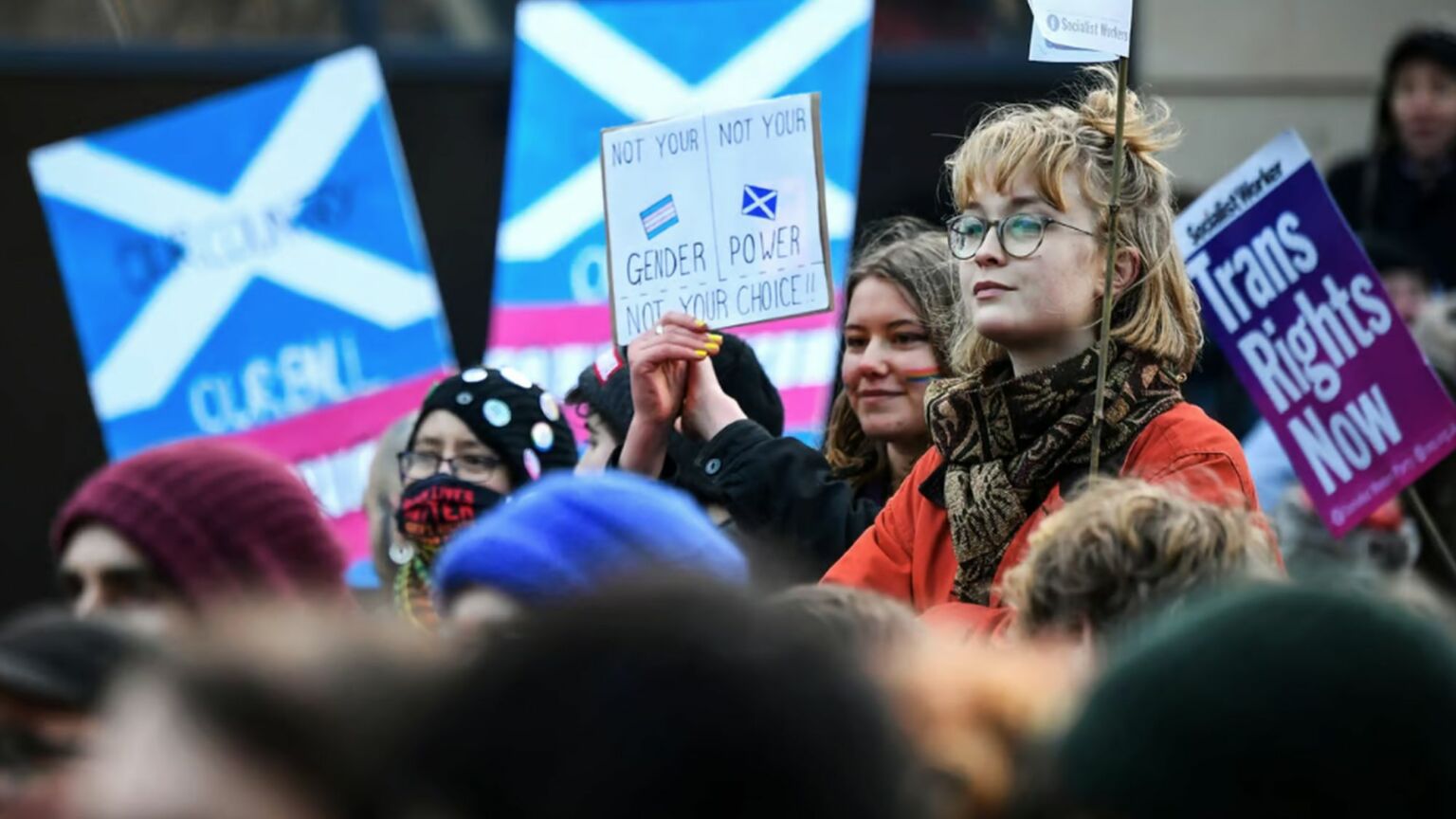The SNP’s trans crusade will tear families apart
Banning ‘trans conversion therapy’ will criminalise parents who want what’s best for their kids.

Want to read spiked ad-free? Become a spiked supporter.
In Scotland today, conversion therapy is a bit like the Loch Ness monster. Some are obsessed with it, despite there being no evidence for its existence. There are no news stories of electric-shock therapy. No reports of people being sent away to camps to be ‘converted’ out of their sexual orientation. No priests caught keenly ‘praying the gay away’. Conversion therapy simply isn’t a problem in 21st-century Scotland.
Yet still the SNP-led Scottish government is seeking to prohibit what it calls ‘conversion practices’. To this end, the government has this month issued a consultation detailing its proposals for new legislation and criminal penalties. Equalities minister Emma Roddick said last week that conversion practices ‘have absolutely no place in Scotland’.
It should be clear that what is driving this ban is not the nonexistent problem of gay conversion therapy. Instead, it is being fuelled by the SNP’s embrace of gender ideology. That’s why the real focus of this legislation is a ban on so-called trans conversion therapy or, as the consultation has it, ‘conversion practices related to gender identity’.
It’s important to clarify what the government means by ‘conversion practices, which aim to change or suppress… gender identity’. These practices include ‘talk-therapy, counselling and certain faith-based practices’. This means that, under this proposed legislation, the act of talking to, or of counselling, a young person struggling with gender issues will potentially be prohibited. It will potentially no longer be possible for a therapist, or indeed any other adult, to explore why someone might feel that they have been ‘born in the wrong body’. Instead, adults will be expected to ‘affirm’ any individual who says he or she is ‘trans’.
The Scottish government’s consultation is careful not to use age-specific terms, talking only of the ‘person’. But it is obvious that those the government deems to be most at risk of trans ‘conversion practices’ are children and young people. That’s what makes this legislation so socially corrosive. It would strike at the most fundamental of all relationships – namely, that between parent and child. It would demand that parents relinquish any authority they might have and just ‘affirm’ their child’s self-diagnosis.
This would be a deeply damaging development. Parents ought to be the primary authority in their children’s lives. They are best placed, by a long way, to help their children navigate their way through childhood, puberty and into adulthood, so that they might find their place in the world. Parents are best placed to do this because their guidance comes from a place of love. They only want to help their children.
The ban on conversion practices undermines parents’ authority and stymies their ability to guide their children. In its place, it cements the new elite idea that children themselves are best placed to decide if they should change their pronouns, socially transition, bind their breasts, take puberty blockers or have irreversible, life-altering surgery. And if any parent, therapist or other adult tries to talk a child through his or her issues instead, they can be accused of engaging in ‘conversion practices’.
In some ways, this proposed ban on trans conversion practices is the spiritual heir to the SNPs defeated ‘Named Person’ scheme. Just like that proposal to give every child, from birth, a state-appointed guardian to oversee their wellbeing, the ban on ‘conversion therapy’ undermines parents and impedes their ability to nurture their children free from state intrusion.
Particularly worrying in this regard is the classification of ‘certain faith-based practices’ as forms of conversion therapy. The vague wording could well mean parents being prohibited from raising their children in accordance with their own faith, where doing so is seen to cut against trans ideology. In this way, the ban also poses a threat to religious freedom and freedom of conscience.
There are so many reasons to oppose this ban on ‘conversion practices’. It will prevent confused and troubled young people from getting the support they need. And it could set them on a path they will later regret. But the threat the ban could pose to parental authority is surely one of the most compelling reasons to oppose it. At its core, the proposals are anti-family. Like the Named Person scheme, they assume that the family is a cesspit of bigotry from which young people need to be protected by the state.
Concerned parents, religious groups and ordinary members of the public must engage in this consultation. Together, we can consign this dangerous proposal to the dustbin of history.
Alex Cameron is on the editorial board of the Scottish Union for Education. He blogs here.
Picture by: Getty.
Who funds spiked? You do
We are funded by you. And in this era of cancel culture and advertiser boycotts, we rely on your donations more than ever. Seventy per cent of our revenue comes from our readers’ donations – the vast majority giving just £5 per month. If you make a regular donation – of £5 a month or £50 a year – you can become a and enjoy:
–Ad-free reading
–Exclusive events
–Access to our comments section
It’s the best way to keep spiked going – and growing. Thank you!










Comments
Want to join the conversation?
Only spiked supporters and patrons, who donate regularly to us, can comment on our articles.